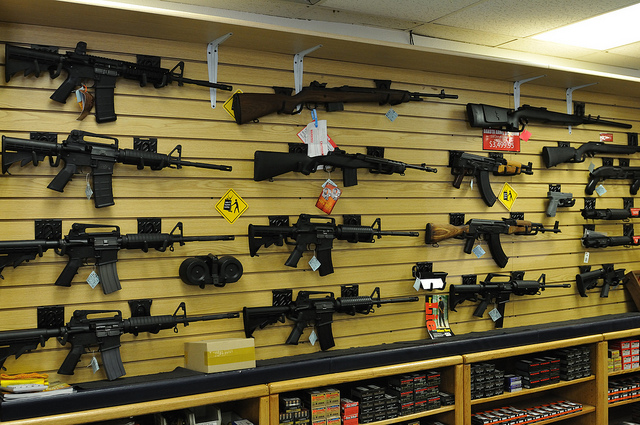At a time when the world is warming up to witness the endless possibilities of 3D Printing, the darker side of this amazing technology is also strengthening quietly. Yoshitomo Imura, a 27-year-old college employee was arrested earlier this month for possessing five plastic guns at his home in Kanagawa Prefecture, two of which had the potential to fire lethal bullets.
Interestingly, The tipoff for this surprisingly came from Imura himself, through the video footage on the Internet of the guns, along with blueprints for them earlier this year. In the video, Imura assembles the handgun from plastic 3-D printed pieces, a few metal pins, screws and rubber bands, then test fires it with blanks. Imura agreed that he produced the guns, but added that he did not that that it was illegal. It’s the first time Japan’s firearm control law has been applied to the possession of guns produced by 3-D printers.
The rapid development of 3-D printing technology, which allows relatively cheap machines to construct complex physical objects by additive manufacturing technique, has thrown a great challenge for law makers and enforcers around the world. In May 2013, the first 3D printed gun, a primitive prototype named “liberator” was unveiled by Cody Wilson, a 25-year-old law student at the University of Texas, amid major controversy. Since then, the design was enhanced vastly, multiple “how to” videos surfaced on YouTube and many advanced designs became available online for enthusiasts. The first gun could hold just one bullet, but now some have revolving barrels that can hold six or more. The alarming speed at which the technology has progressed shows how close these guns are to accurately mimicking real-life weapons.
With a 3D printer, technically anyone can then download one of the designs and print their own gun, though in reality, users require a decent knowledge of 3D printing and assembly. The ease of availability of these designs is alarming. And the fact they are made of plastic and not metal means they can be taken through metal detectors without being picked up. For the moment, though, ammo and firing pins must still be metal. But there is a possibility that in future entire guns could be 3D-printed – including the ammo. 3D printed guns jumped to the top of agendas worldwide when governments realized they could be taken through metal detectors without setting them off.
The guns produced from these designs are capable to seriously harm and even kill people, just like regular guns – with the difference being the designs for 3D-printed guns can be downloaded from the internet. Hence, this amazing technology, unless regulated properly, can fall into wrong hands and be a lethal weapon against the human race.
